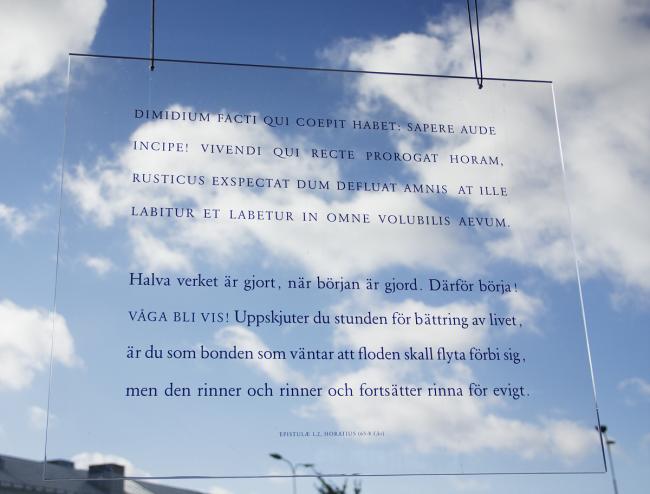Doctoral Students in Comparative Literature

Jonas M. Hoeck
I call my PhD project “The scientific artist”. In this project, I explore contemporary hybrid art, and its heteromedial implications. Several contemporary writers and artists are experimenting with the breakdown and mixing of the classic disciplinary categories. These experiments question our perception of the different languages and media we face today. I therefore look etymologically at how the linguistic mergers between the traditional scientific language and the poetic language form new constellations and change our perception of the media landscape. In addition, I also explore how the urge for unity and desire to experiment with the merging of otherwise separated understandings of language are linked to the natural sciences that the artists and writers incorporate into their hybrid works. As technology has moved in a digital direction, computers, VR, and the Internet are often included as elements in the heteromedial experiments, and therefore these technological platforms and their means will also play a crucial role in my study. My aim is to write a dissertation that, first and foremost, provides an overview of the hybrid and literary art forms of Scandinavian literature, and that, secondly, can open up a better understanding of the interpretation of late modern reality represented in them.
Jakob Olsson
In my doctoral thesis, I study representations of digitalisation, in the form of various machines and systems, in Swedish-language children’s and young adults’ fiction from the beginning of the 21st century until today. The aim is to start out from the perspectives of pedagogy and media history to examine the digitalisation strategies of these texts: the ways in which they follow from, highlight, and enter into dialogue with their media history contexts. What can these texts tell their young readers about what it means to be human in a digitalised world?
Jessica Sundin
In my dissertation project, I investigate the (inter)medial aspects of the worldbuilding in fantasy prose fiction, comics, and video games. That is, the different ways in which the secondary worlds are mediated and portrayed in each media product. My aim is to study how medial aspects affect the portrayal of secondary worlds, whether there are affordances at work and how they could affect the portrayal. Furthermore, my research will additionally take interest in immersion in relation to worldbuilding.

